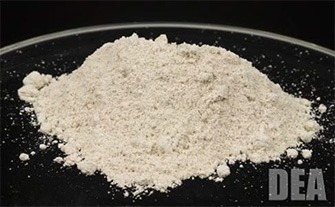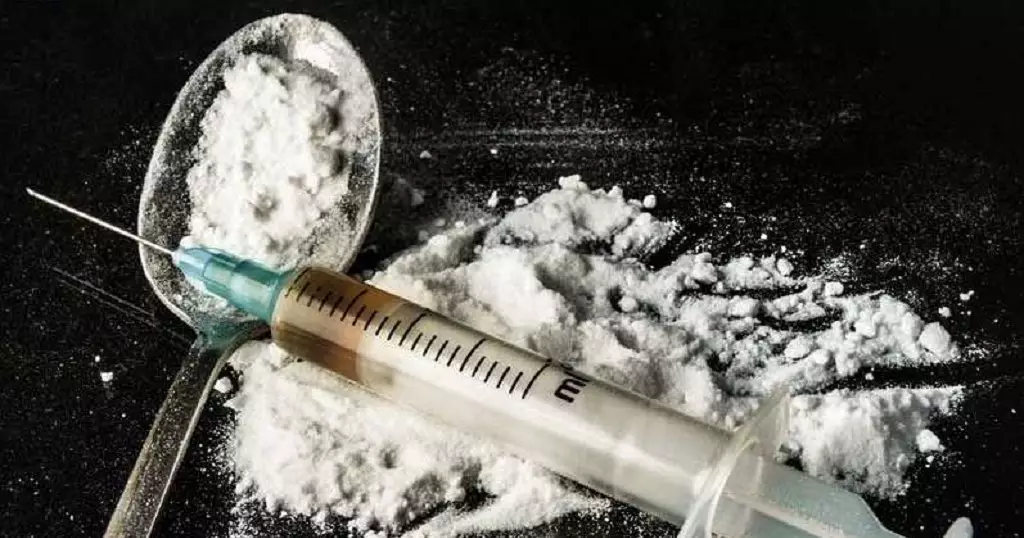What is heroin?

Heroin is an opioid drug made from morphine, a natural substance taken from the seed pod of the various opium poppy plants grown in Southeast and Southwest Asia, Mexico, and Colombia. Heroin can be a white or brown powder, or a black sticky substance known as black tar heroin.
How do people use heroin?
People inject, sniff, snort, or smoke heroin. Some people mix heroin with crack cocaine, a practice called speedballing.
What are the effects of heroin?
Heroin enters the brain rapidly and binds to opioid receptors on cells located in many areas, especially those involved in feelings of pain and pleasure and in controlling heart rate, sleeping, and breathing.
Prescription Opioids and Heroin
Prescription opioid pain medicines such as OxyContin® and Vicodin® have effects similar to heroin. Research suggests that misuse of these drugs may open the door to heroin use. Data from 2011 showed that an estimated 4 to 6 percent who misuse prescription opioids switch to heroin1-3 and about 80 percent of people who used heroin first misused prescription opioids.1-3 More recent data suggest that heroin is frequently the first opioid people use. In a study of those entering treatment for opioid use disorder, approximately one-third reported heroin as the first opioid they used regularly to get high.4
This suggests that prescription opioid misuse is just one factor leading to heroin use. Read more about this intertwined problem in our Prescription Opioids and Heroin Research Report.
Short-Term Effects
People who use heroin report feeling a “rush” (a surge of pleasure, or euphoria). However, there are other common effects, including:
- dry mouth
- warm flushing of the skin
- heavy feeling in the arms and legs
- nausea and vomiting
- severe itching
- clouded mental functioning
- going “on the nod,” a back-and-forth state of being conscious and semiconscious
Long-Term Effects
Injection Drug Use, HIV, and Hepatitis
People who inject drugs such as heroin are at high risk of contracting the HIV and hepatitis C (HCV) virus. These diseases are transmitted through contact with blood or other bodily fluids, which can occur when sharing needles or other injection drug use equipment. HCV is the most common bloodborne infection in the Unites States. HIV (and less often HCV) can also be contracted during unprotected sex, which drug use makes more likely.
Read more about the connection between heroin and these diseases in our Heroin Research Report.
People who use heroin over the long term may develop:
- insomnia
- collapsed veins for people who inject the drug
- damaged tissue inside the nose for people who sniff or snort it
- infection of the heart lining and valves
- abscesses (swollen tissue filled with pus)
- constipation and stomach cramping
- liver and kidney disease
- lung complications, including pneumonia
- mental disorders such as depression and antisocial personality disorder
- sexual dysfunction for men
- irregular menstrual cycles for women
Other Potential Effects
Heroin often contains additives, such as sugar, starch, or powdered milk, that can clog blood vessels leading to the lungs, liver, kidneys, or brain, causing permanent damage. Also, sharing drug injection equipment and having impaired judgment from drug use can increase the risk of contracting infectious diseases such as HIV and hepatitis (see “Injection Drug Use, HIV, and Hepatitis”).
Can a person overdose on heroin?
Yes, a person can overdose on heroin. A heroin overdose occurs when a person uses enough of the drug to produce a life-threatening reaction or death. Heroin overdoses have increased in recent years.

